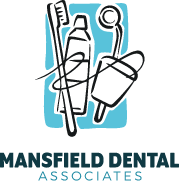Your risk for dental issues can differ from another person’s – your issues can also differ from your relative risk in the past. Sometimes, a change in the state of your oral health will make you more vulnerable to tooth issues. A problem like dry mouth, for instance, can leave your teeth more at the mercy of oral bacteria than normal, and make it easier for you to develop a cavity. Other issues can be serious, though not necessarily related to cavities. People dealing with bruxism have a real risk of suffering structural damage to their teeth. If you are aware of dental risks, you should confer with your dentist about how to counter those risks.
Looking For Signs Of Bruxism
At every checkup, your dentist will take time to pay close attention to your teeth. They are looking for more than just signs of decay, though catching cavities is a high priority. If your teeth are suspiciously worn or chipped, it may tip your dentist off to your habit of grinding your teeth. This habit, bruxism, needs to be addressed, as you are capable of seriously damaging teeth when you clench your jaw.
Dry Mouth
There are tricks for dealing with dry mouth. Drinking more water can improve your hydration and make it easier for your body to produce saliva. You can also chew sugar-free gum to trigger more saliva production. With these efforts, you can help reduce the possibility that you will need restorative dental work.
Offset An Elevated Cavity Risk With Dental Sealants
If your cavity risk has spiked – or if you are naturally more vulnerable to cavities – your dentist may want to apply dental sealants to your teeth. The sealants keep them safe from food debris and bacteria, agents which cause cavities.





Recent Comments